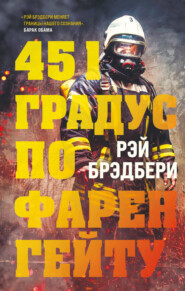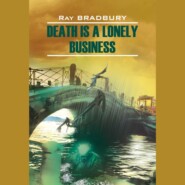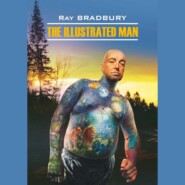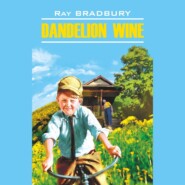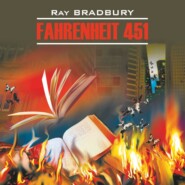По всем вопросам обращайтесь на: info@litportal.ru
(©) 2003-2024.
✖
Ray Bradbury Stories Volume 1
Настройки чтения
Размер шрифта
Высота строк
Поля
‘That’s unfair!’ he said, wavering like a man hit in the stomach. ‘You can’t prove that. You lie!’
‘Nevertheless, I don’t think Cecy’d want to help you. The Family wouldn’t want it.’
‘Family, Family!’ He stomped the floor like a huge, brutal child. ‘Damn the Family! I won’t go insane on their account! I need help. God damn it, and I’ll get it!’
Mother faced him, her face reserved, her hands crossed over her bosom.
He lowered his voice, looking at her with a kind of evil shyness, not meeting her eyes. ‘Listen to me, Mrs Elliott,’ he said. ‘And you, too, Cecy,’ he said to the sleeper. ‘If you’re there,’ he added. ‘Listen to this.’ He looked at the wall clock ticking on the far, sun-drenched wall. ‘If Cecy isn’t back here by six o’clock tonight, ready to help clean out my mind and make me sane, I’ll – I’ll go to the police.’ He drew himself up. ‘I’ve got a list of Elliotts who live on farms all around and inside Mellin Town. The police can cut enough new cedar stakes in an hour to drive through a dozen Elliott hearts.’ He stopped, wiped the sweat off his face. He stood, listening.
The distant bell began to toll again.
He had heard it for weeks. There was no bell, but he could hear it ringing. It rang now, near, far, close, away. Nobody else could hear it save himself.
He shook his head. He shouted to cover the sound of those bells, shouted at Mrs Elliott. ‘You heard me?’
He hitched up his trousers, tightened the buckle clasp with a jerk, walked past Mother to the door.
‘Yes,’ she said. ‘I heard. But even I can’t call Cecy back if she doesn’t want to come. She’ll arrive eventually. Be patient. Don’t go running off to the police—’
He cut her. ‘I can’t wait. This thing of mine, this noise in my head’s gone on eight weeks now! I can’t stand it much longer!’ He scowled at the clock. ‘I’m going. I’ll try to find Cecy in town. If I don’t get her by six – well, you know what a cedar stake’s like …’
His heavy shoes pounded away down the hall, fading down the stairs, out of the house. When the noises were all gone, the mother turned and looked, earnestly, painfully, down upon the sleeper.
‘Cecy,’ she called, softly, insistently. ‘Cecy, come home!’
There was no word from the body. Cecy lay there, not moving, for as long as her mother waited.
Uncle Jonn walked through the fresh open country and into the streets of Mellin Town, looking for Cecy in every child that licked an ice-pop and in every little white dog that padded by on its way to some eagerly anticipated nowhere.
The town spread out like a fancy graveyard. Nothing more than a few monuments, really – edifices to lost arts and pastimes. It was a great meadow of elms and deodars and hackmatack trees, laid out with wooden walks you could haul into your barn at night if the hollow sound of walking people irked you. There were tall old maiden houses, lean and narrow and wisely wan, in which were spectacles of colored glass, upon which the thinned golden hair of age-old bird nests sprouted. There was a drug shop full of quaint wire-rung soda-fountain stools with plywood bottoms, and the memorious clear sharp odor that used to be in drug stores but never is any more. And there was a barber emporium with a red-ribboned pillar twisting around inside a chrysalis of glass in front of it. And there was a grocery that was all fruity shadow and dusty boxes and the smell of an old Armenian woman, which was like the odor of a rusty penny. The town lay under the deodar and mellow-leaf trees, in no hurry, and somewhere in the town was Cecy, the one who Traveled.
Uncle John stopped, bought himself a bottle of Orange Crush, drank it, wiped his face with his handkerchief, his eyes jumping up and down, like little kids skipping rope. I’m afraid, he thought. I’m afraid.
He saw a code of birds strung dot-dash on the high telephone wires. Was Cecy up there laughing at him out of sharp bird eyes, shuffling her feathers, singing at him? He suspicioned the cigar-store Indian. But there was no animation in that cold, carved, tobacco-brown image.
Distantly, like on a sleepy Sunday morning, he heard the bells ringing in a valley of his head. He was stone blind. He stood in blackness. White, tortured faces drifted through his inturned vision.
‘Cecy!’ he cried, to everything, everywhere. ‘I know you can help me! Shake me like a tree! Cecy!’
The blindness passed. He was bathed in a cold sweating that didn’t stop, but ran like a syrup.
‘I know you can help,’ he said. ‘I saw you help Cousin Marianne years ago. Ten years ago, wasn’t it?’ He stood, concentrating.
Marianne had been a girl shy as a mole, her hair twisted like roots on her round ball of head. Marianne had hung in her skirt like a clapper in a bell, never ringing when she walked; just swithering along, one heel after another. She gazed at weeds and the sidewalk under her toes, she looked at your chin if she saw you at all – and never got as far as your eyes. Her mother despaired of Marianne’s ever marrying or succeeding.
It was up to Cecy, then. Cecy went into Marianne like fist into glove.
Marianne jumped, ran, yelled, glinted her yellow eyes. Marianne flickered her skirts, unbraided her hair and let it hang in a shimmery veil on her half-nude shoulders. Marianne giggled and rang like a gay clapper in the tolling bell of her dress. Marianne squeezed her face into many attitudes of coyness, merriment, intelligence, maternal bliss, and love.
The boys raced after Marianne. Marianne got married.
Cecy withdrew.
Marianne had hysterics; her spine was gone!
She lay like a limp corset all one day. But the habit was in her now. Some of Cecy had stayed on like a fossil imprint on soft shale rock: and Marianne began tracing the habits and thinking them over and remembering what it was like to have Cecy inside her, and pretty soon she was running and shouting and giggling all by herself; a corset animated, as it were, by a memory!
Marianne had lived joyously thereafter.
Standing with the cigar-store Indian for conversation, Uncle Jonn now shook his head violently. Dozens of bright bubbles floated in his eyeballs, each with tiny, slanted, microscopic eyes staring in, in at his brain.
What if he never found Cecy? What if the plain winds had borne her all the way to Elgin? Wasn’t that where she dearly loved to bide her time, in the asylum for the insane, touching their minds, holding and turning their confetti thoughts?
Far-flung in the afternoon distance a great metal whistle sighed and echoed, steam shuffled as a train cut across valley trestles, over cool rivers through ripe cornfields, into tunnels like finger into thimble, under arches of shimmering walnut trees. Jonn stood, afraid. What if Cecy was in the cabin of the engineer’s head, now? She loved riding the monster engines across country far as she could stretch the contact. Yank the whistle rope until it screamed across sleeping night land or drowsy day country.
He walked along a shady street. Out of the corners of his eyes he thought he saw an old woman, wrinkled as a dried fig, naked as a thistle-seed, floating among the branches of a hawthorn tree, a cedar stake driven into her breast.
Somebody screamed!
Something thumped his head. A blackbird, soaring skyward, took a lock of his hair with it!
He shook his fist at the bird, heaved a rock. ‘Scare me, will you!’ he yelled. Breathing rawly, he saw the bird circle behind him to sit on a limb waiting another chance to dive for hair.
He turned slyly from the bird.
He heard the whirring sound.
He jumped about, grabbed up. ‘Cecy!’
He had the bird! It fluttered, squalled in his hands.
‘Cecy!’ he called, looking into his caged fingers at the wild black creature. The bird drew blood with its bill.
‘Cecy, I’ll crush you if you don’t help me!’
The bird shrieked and cut him.
He closed his fingers tight, tight, tight.
He walked away from where he finally dropped the dead bird and did not look back at it, even once.
He walked down into the ravine that ran through the very center of Mellin Town. What’s happening now? he wondered. Has Cecy’s mother phoned people? Are the Elliotts afraid? He swayed drunkenly, great lakes of sweat bursting out under his armpits. Well, let them be afraid awhile. He was tired of being afraid. He’d look just a little longer for Cecy and then go to the police!
On the creek bank, he laughed to think of the Elliotts scurrying madly, trying to find some way around him. There was no way. They’d have to make Cecy help him. They couldn’t afford to let good old Uncle Jonn die insane, no, sir.
B-B-shot eyes lay deep in the water, staring roundly up at him.
On blazing hot summer noons, Cecy had often entered into the soft-shelled grayness of the mandibled heads of crayfish. She had often peeked out from the black egg eyes upon their sensitive filamentary stalks and felt the creek sluice by her, steadily, and in fluid veils of coolness and captured light. Breathing out and in the particles of stuff that floated in water, holding her horny, lichened claws before her like some elegant salad utensils, swollen and scissor-sharp. She watched the giant strides of boy feet progressing toward her through the creek bottom, heard the faint, water-thickened shout of boys searching for crayfish, jabbing their pale fingers down, tumbling rocks aside, clutching and tossing frantic flippery animals into open metal cans where scores of other crayfish scuttled like a basket of waste-paper come to life.






